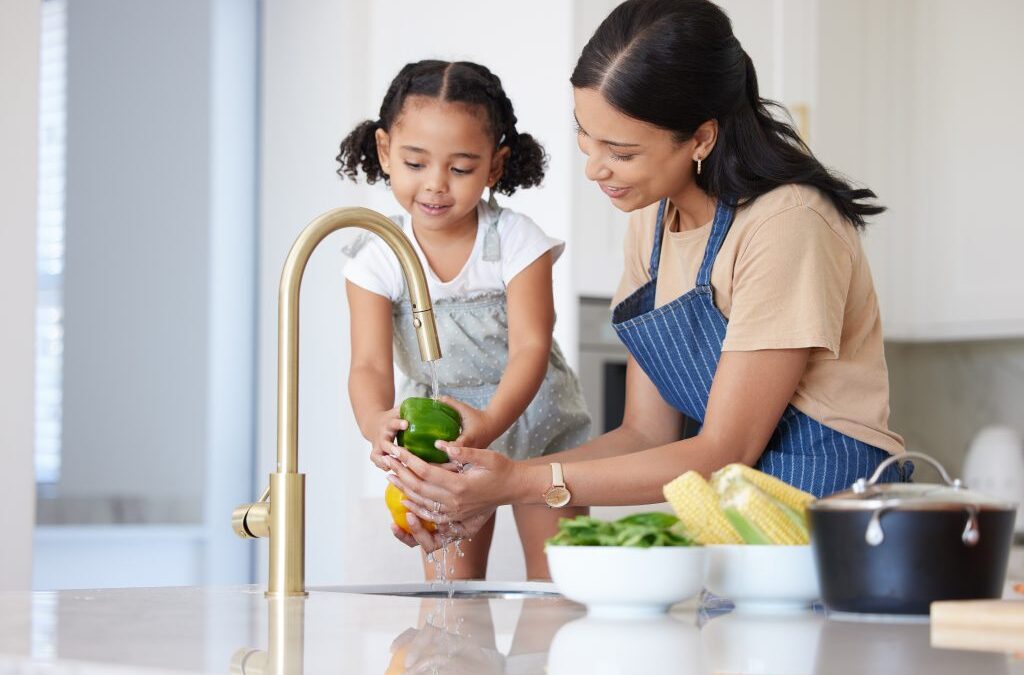Why is it important to teach your child responsibility?
Many different problems occur because people do not understand their duties and responsibilities. It is very important to teach children responsibility, such as doing daily chores, cleaning up toys after play, and helping with housework. When they go to school, they will know their responsibilities as a student, such as paying attention, helping teachers and classmates, sharing, etc; it is an important part of their growth and development. Without training from a young age, it is difficult for children to learn this when they grow up.
Be a Role Model
First and foremost, as parents, you should model responsible behavior in the home. Some simple steps are apologizing when a mistake is made, cleaning up after every mess, bringing a shopping cart back to the store, etc. Many simple moments in our everyday life require our attention, and involving your kids in them can help teach them responsibility.
Outline and Enforce Rules
Be consistent with your enforcement of rules. Make a few set rules for the house, and make sure you are consistently verbalizing them. You should also make sure you are always enforcing them for every child, and not making excuses for them.
Give Clear and Simple Instructions
Parents should teach children to understand that they should help parents do some of the housework and explain that outside the home they have to wait their turn and share toys.
Train Children in Real-Life Situations
After teaching and giving instructions, parents should train their children in real-life situations. Give them simple tasks to do at home, such as passing eggs or vegetables during the cooking time, learning to set a dinner table, etc. Parents should notice how their children play with friends and teach them the correct way if they do not take turns and share toys. It will take time and patience. Do not forget to share words of encouragement with your children when they do well.
Stay Positive
Maintaining positivity is incredibly important. When you have a chore to do, be cheerful about it when you ask your children to help. If you’ve finished your meal, say “Please put your dishes in the sink”, rather than “Why did you leave a mess?”. Positive reinforcement can be crucial when introducing responsibilities to your children. Another good tip is to involve yourself in the chore. After a meal, you could say “Let’s clean up the dishes now!”.
Parents will begin to realize that their actions rub off on their kids. When you show that you take care of your responsibilities, your children will learn just how important they are. Try to keep your kids involved in your daily activities as much as possible, as this will enthuse them to learn about responsibility.
Praise Them
Kids love to help. They want to help. To them, chores don’t feel like work. Keep up positive vibes by offering specific praises for actions. “You hung your coat on the hook and I’m proud of you!” Or, “Thank you for emptying the garbage in your room!”
Children will develop a sense of ownership for any repeated action. And this constant communication helps them take initiative in other situations, says Barzvi, such as at school or on a play date.
Show Kids the Way
Play to a child’s skill level, suggest both experts. First, you can demonstrate how to complete small tasks. If your son wants a snack, show him where the apples are and how to wash one off. Does your daughter always throw her dirty clothes on the floor? Place a hamper in her room and show her where the day-old jeans belong.
Model Responsibility
And talk about it. Banish a tableful of dirty breakfast dishes with the line: “Now we put our plate in the sink,” as the meal ends. Use the same inclusive “we” phrases over and over to show how you can easily solve problems. Ask other family members and your nanny to follow suit. You’ll be surprised how quickly these actions become a habit for kids.
Provide Structure and Routine
Kids thrive on order. Instead of offering rewards to get them to meet responsibilities, set up a morning routine with a positive end result. Your son must brush his teeth, eat breakfast and get dressed before watching TV. (Notice TV is not being offered as a reward. It’s just the result of finishing the routine.) And he should be able to complete the routine in any order that works for him.

